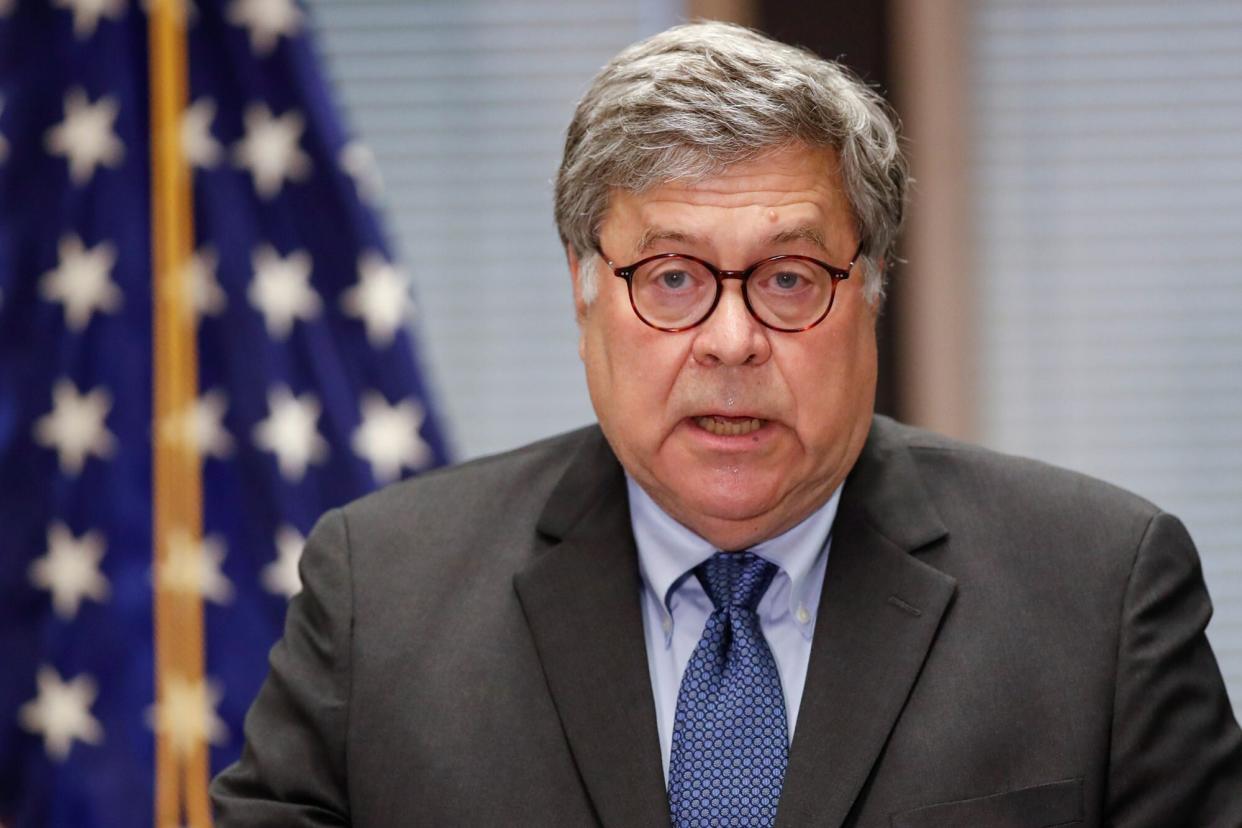Attorney General Bill Barr Draws Ire for Comparing Coronavirus Lockdowns to Slavery

KAMIL KRZACZYNSKI/AFP via Getty Attorney General Bill Barr
Attorney General Bill Barr quickly drew criticism this week after he compared the widespread lockdowns meant to slow the COVID-19 pandemic to "slavery" — likening months of business and school shutdowns to the centuries in America in which African people were kidnapped, tortured and bought and sold as property.
Barr, who previously served as attorney general under President George H. W. Bush, made his comments on Wednesday during a Constitution Day celebration hosted by Hillsdale College.
During a question-and-answer session, the event's host asked Barr, 70, to explain the "constitutional hurdles for forbidding a church from meeting during COVID-19," referencing the legal challenges some religious institutions have brought over coronavirus shutdowns they say are overly broad.
In his lengthy response, which CNN notes went on for close to four minutes, Barr said in part that "a national lockdown, stay-at-home orders is like house arrest."
"Other than slavery, which was a different kind of restraint, this is the greatest intrusion on civil liberties in American history," he said.
The negative reaction was swift.
Actor George Takei tweeted: "As someone who spent four years in U.S. internment camps during World War II, I think Bill Barr is full of horse manure."
Another Twitter user wrote, "I'd love to see how he would've handled picking cotton all day long, getting whipped within an inch of his life for being tired."
Harvard Law School professor Laurence Tribe tweeted: "What an obscene comparison. Only an evil fool could talk that way."
At the Wednesday event, Barr also argued against medical professionals making decisions regarding the openings and closures of businesses during the pandemic.
"The person in the white coat is not the grand seer who can come up with the right decision for society," he said. "A free people makes its decisions through its elected representatives."
That answer was met with applause from audience members.
RELATED: CDC Director Says to Wear Masks as COVID-19 Vaccine Won’t Be Ready Until 2021, Clashing with Trump
Barr has become increasingly ardent in his stance against the lockdowns that encourage social distancing and avoid large indoor groups to slow new infections.
In the early months of the pandemic, many local and state government implemented such measures at the recommendation of medical experts.
In a letter signed by over 150 medical experts and sent to the Trump administration in July, physicians urged against a return to normal activity while the pandemic was still spreading.
“The best thing for the nation is not to reopen as quickly as possible,” the letter said. “It’s to save as many lives as possible. And reopening before suppressing the virus isn’t going to help the economy.”
The coronavirus has so far killed more than 196,000 people in America and infected more than six million nationwide, according to a New York Times tracker.
Barr hasn't been swayed by the evidence showing lockdowns can contain outbreaks and prevent additional deaths — taking a view of them as overly restrictive. (The lockdowns have drawn some criticism, particularly from conservatives, that they can be a ham-fisted solution with other consequences.)
In April, the attorney general issued a memo directing Department of Justice prosecutors to act against state or local authorities mandating measures that "could be violating the constitutional rights and civil liberties of individual citizens."
RELATED: The Federal Government Wants to Defend Trump in Rape Accuser Lawsuit — at Taxpayer Expense
In his wide-ranging Wednesday conversation at Hillsdale, Barr also discussed other issues such as the Black Lives Matter movement and protests related to police brutality, sparked by the deaths of George Floyd and others.
"Who can quarrel with the proposition, 'Black Lives Matter?' " Barr asked at the event. "But they're not interested in Black lives ... They're interested in props — a small number of Blacks who are killed by police, during conflict with police, usually less than a dozen a year, who they can use as props — to achieve a much broader political agenda."
Statistics continually show that police kill Black people at disproportionate rates.
According to data project Mapping Police Violence, Black people have accounted for 28 percent of those killed by police in 2020, despite making up 13 percent of the population.


